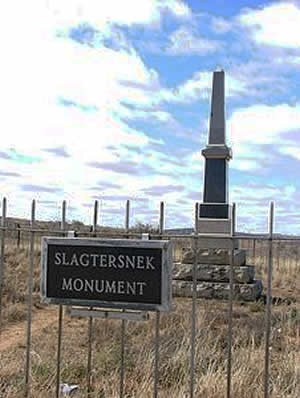This Day in History: March 9, 1816
Additional Date: March 9, 1816
In 1815, tensions between the British and Dutch were running high. The Dutch settlers strongly (and correctly) suspected the British of resenting their presence in the Cape Colony. Following the prosecution of an Afrikaner farmer by the name of Frederik Bezuidenhout, by the British aministration, Frederick's brother, Hans, and his neighbour Hendrik Prinsloo, organised an uprising against the British colonial power. The rebellion was quickly quashed, with a number of rebels dying in the ensuing fight and the others simply being arrested. Five rebels of the Slachter's Nek Rebellion (also Slagtersnek), Cornelius Faber, Hendrik Prinsloo, Theunis de Klerk, and brothers Stefanus and Abraham Bothma, were sentenced by the British to be hanged in public at Van Aardtspos. When they came to be hanged, however, four of the five ropes attached to the gallows snapped under the body weight of their prisoners. The men were still alive and begged for mercy, along with a large number of people who had been ordered to attend the execution. However, the British forced the prisoners to ascend the scaffold a second time and the sentence was carried out one by one, using a single rope.
Only sixty border farmers supported the rebellion and normal punishment of the ringleaders would not have caused bitterness, some farmers even helped in repressing the rebellion, but the inhumanity of the execution awoke an emotional response, causing it to be mentioned by some as one of the causes of the Great Trek that took place from 1835-1846
